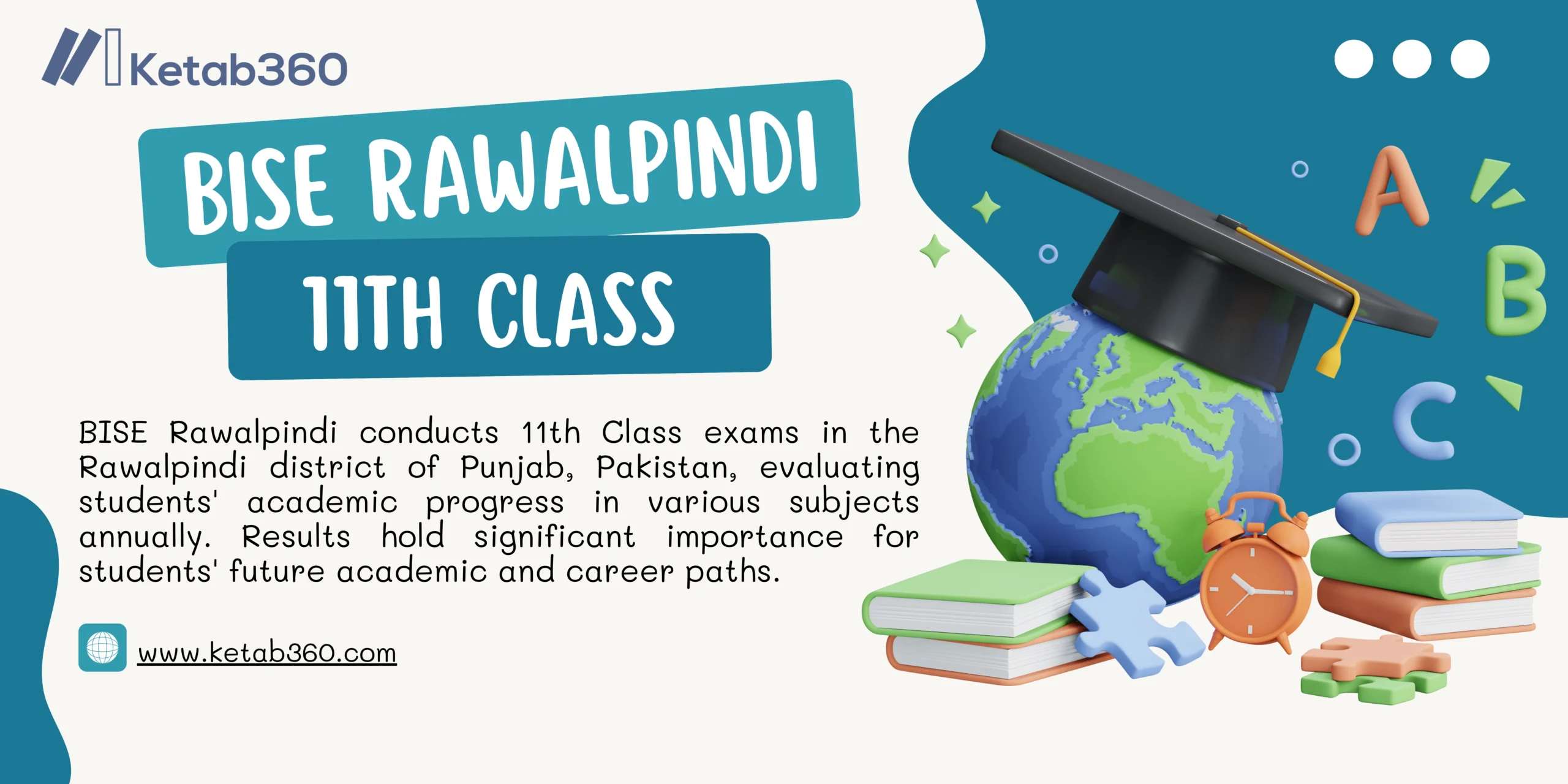Introduction:
The 12th class examinations conducted by the Board of Intermediate and Secondary Education (BISE) Rawalpindi are a crucial milestone in a student’s academic journey. These examinations hold great significance as they mark the culmination of a student’s higher secondary education and serve as the gateway to higher education institutions and future career prospects. In this comprehensive article, we explore the importance of BISE Rawalpindi 12th Class examinations, the examination process, its impact on students’ academic careers, and the measures taken to ensure a fair and transparent evaluation system.
The Role of BISE Rawalpindi:
BISE Rawalpindi is among the prominent educational boards in Punjab, Pakistan. Established to regulate and conduct examinations at the intermediate and secondary levels, BISE Rawalpindi plays a crucial role in the province’s education system. The board operates under the Punjab Boards of Intermediate and Secondary Education Act 1976 and is responsible for formulating examination policies, designing curricula, and ensuring the smooth conduct of examinations.
Importance of 12th Class Examinations:
The 12th class examinations are a pivotal point in a student’s academic journey. Also known as the second-year intermediate examinations, they represent the culmination of higher secondary education. The significance of these exams can be understood through the following aspects:
Higher Education Pursuits: The results of the 12th class examinations play a critical role in determining a student’s eligibility for admission to universities and colleges. Merit-based admissions are commonly practiced in higher education institutions, and strong performance in these exams opens doors to prestigious educational institutes.
Specialization and Career Choices: The 12th class examinations require students to select specific streams or disciplines, such as science, arts, commerce, or computer science. These choices define their future academic and professional paths, influencing their career choices.
Scholarships and Financial Aid: Exceptional performance in the 12th class exams can lead to various scholarship opportunities and financial assistance programs, supporting students from economically challenged backgrounds in pursuing higher studies.
Personal Growth and Skills Development: Preparing for the 12th class examinations instills valuable skills such as time management, discipline, critical thinking, and problem-solving. These attributes are essential for success not only in academics but also in various aspects of life.
Examination Process:
The examination process for the 12th class is carefully designed to ensure fairness, transparency, and accuracy in evaluating students’ knowledge and understanding. The procedure includes the following key steps:
Registration: Prior to the examination period, students are required to register themselves with BISE Rawalpindi for the 12th class examinations. The registration process includes providing necessary documents, such as identification, previous academic records, and a passport-sized photograph, along with the examination fee.
Date Sheets: BISE Rawalpindi releases the date sheets before the examination period, providing students with the exam schedule for different subjects. This helps students plan their study routines effectively.
Examination Centers: The board designates examination centers across the region, where students must appear for their respective papers. The centers are chosen strategically to facilitate a smooth and secure conduct of the exams.
Examination Format: The 12th class examinations consist of both theoretical and practical components, depending on the subject. Theoretical papers are conducted in a written format, whereas practical exams are conducted in designated laboratories.
Evaluation Process: After the completion of the examinations, answer scripts are collected and sent for evaluation. BISE Rawalpindi engages experienced teachers and examiners to assess the students’ responses, ensuring confidentiality and fairness throughout the evaluation process.
Result Declaration: Once the evaluation is complete, BISE Rawalpindi announces the 12th class results. Students can check their results online or obtain them through their respective educational institutions. The results are typically available within a few weeks after the conclusion of the examinations.
Impact on Students:
The outcome of the 12th class examinations has a profound impact on students’ academic and professional futures. Here are some ways in which the results influence students:
University Admissions: High scores in the 12th class examinations improve a student’s chances of securing admission to renowned universities and colleges. Top institutions often have rigorous admission criteria, and strong results can set candidates apart from the competition.
Specialization and Career Path: The stream or discipline chosen in the 12th class exams shapes students’ future academic and career trajectories. Students must make well-informed decisions, considering their interests, strengths, and long-term goals.
Scholarships and Financial Assistance: Outstanding academic performance opens doors to various scholarship programs and financial aid opportunities. These support systems alleviate the financial burden on students and encourage them to pursue higher education.
Motivation and Confidence: Excellent results in the 12th class exams boost students’ confidence and motivation. It validates their hard work and dedication, encouraging them to aim higher in future endeavors.
Parental Expectations: In Pakistani culture, academic achievements are often significant to families. The 12th class results can influence parental expectations and aspirations for their children’s educational and professional accomplishments.
Measures for Fairness and Transparency:
BISE Rawalpindi takes several measures to ensure fairness and transparency in the examination process. Some of these measures include:
Impartial Examination Centers: The board designates examination centers that are impartial and equipped to maintain a conducive environment for students during exams.
Confidential Evaluation: The evaluation of answer scripts is conducted with the utmost confidentiality to prevent any bias or favoritism.
Plagiarism Checks: BISE Rawalpindi employs advanced plagiarism detection tools to ensure the originality of students’ responses.
Rechecking and Revaluation: To address concerns of fairness, the board allows students to apply for rechecking or revaluation of their answer scripts if they believe their results are unjust.
Conclusion:
The BISE Rawalpindi 12th class examinations are a defining moment in a student’s educational journey. Beyond being a stepping stone to higher education, these exams shape students’ career paths and aspirations. BISE Rawalpindi’s commitment to maintaining fairness, transparency, and high standards in the examination process instills confidence in students and their families. As students prepare to face the challenges and opportunities that lie ahead, the 12th class examinations serve as a testament to their academic achievements and potential for success in their chosen fields. With a diligent and dedicated approach to education, BISE Rawalpindi continues to pave the way for a brighter future for the youth of Punjab, Pakistan.






